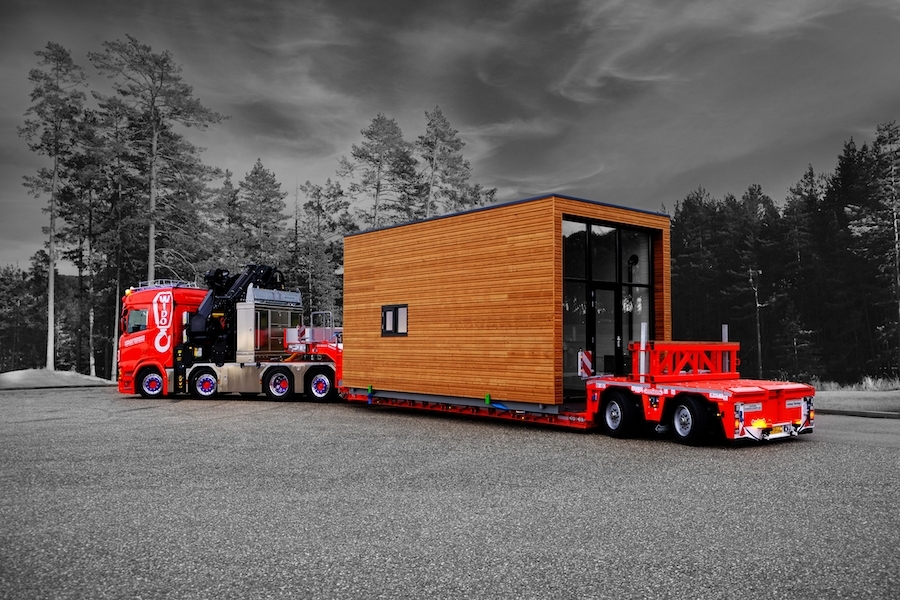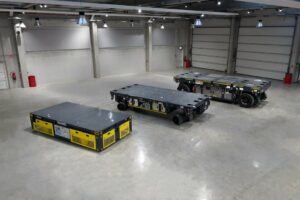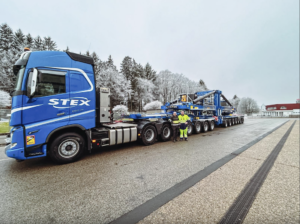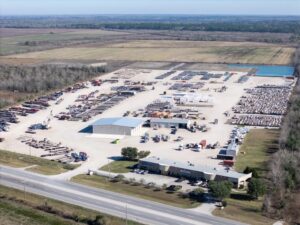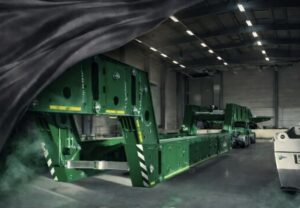Nijmegen-based Wido has recently started using a 2-axle Nooteboom low-loader with pendle axles, especially for the transport of tiny houses. This EURO-PX low-loader was custom built according to the requirements and wishes of Henk and Jan Heijting, Wido’s management. Important requirements were a very low floor and maximum manoeuverability.
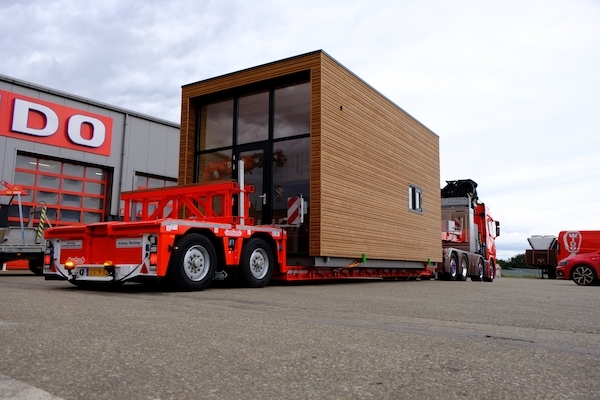
“It was not so much about the weight, because these ready-made tiny houses weigh an average of ‘only’ four tons. It was mainly due to the height of these houses, which are 8 meters long, 3.5 meters wide and 4 meters high when it comes to double houses. With an ordinary low-loader that’s 50 centimeters in height, you will not be able to do it because of the maximum permissible height of 4.25 meters as a truck combination. Therefore, it is important to us that the loading floor of that low-loader is not higher than 25 centimeters in order to be able to keep to the permitted height. In order to be able to drive over elevated railroad crossings and other unevenness on rough terrains, the ground clearance under the loading floor of the low-loader can be adjusted in height by means of the hydraulic suspension, with a maximum radial run-out of 60 cm,“ says Henk Heijting.
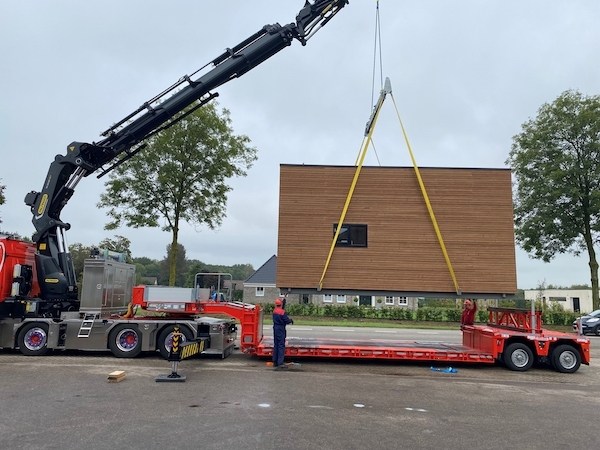
Many tiny houses are placed on camping sites or in rural areas, where it is difficult or even impossible to manoeuver a low-loader, Wido has opted for the version with pendle axles that offer a very large steering angle. “From the cab, the driver or possibly the transport attendant can also manually control the axles of the low-loader with a wireless remote control at very low speeds. In this way, very short or right-angled turns can also be made on narrow roads. The 2-axle low-loader is equipped with pendle axles, as I call them airplane wheels, which have a steering angle of about 60 and can therefore make very sharp and short turns.”
The low-loader is equipped with a hydraulically detachable gooseneck with outer girders. This gooseneck is equipped with an extra box at the back for storing materials that are used a lot, such as tension straps and chains. “In this way, the driver does not always have to climb onto the top part of the trailer to the box that is standard there. We also had the space on the back of the trailer, between what we call the buttocks, closed. We do not need this space for the objects we transport with it and leaving this space open just means attracting more dirt. Additionally, we can now also take cargo on the back if it suits us.” The low-loader’s only 20 centimeters thin floor, a so-called super shallow deck, has an anti-slip layer.
“We are growing considerably and I expect that a few Nooteboom 3-axle vehicles will follow in the near future.¨ At the moment, the low-loader is often coupled behind the Scania equipped with a loader crane. ¨This is now our second Scania”, says Heijting. “I am actually mainly into Volvos while my father is a real DAF man, but this Scania suits me very well and is very suitable for this job. Our driver Sicco, who usually drives this combination, is also very happy with it.”


